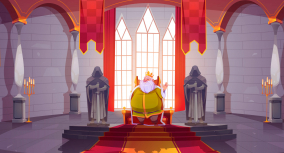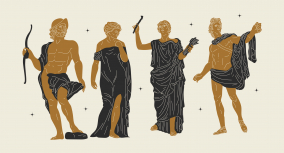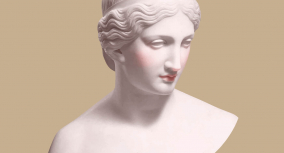Is Antigone a tragedy? Who is the protagonist in the play? What are the symbols and literary devices used by Sophocles? Find the answers in this article about Antigone symbolism and genre written by Custom-Writing.org experts.
This short guide is perfect for any student who needs to get ready for the finals or enjoys digging into a fine piece of writing.
🦅 Symbolism in Antigone
Symbolism in Antigone has a special significance. There are many different variations of what the symbols in the play are and what they mean. However, here, we discuss those most frequently met and related to the main themes.

Moreover, symbolism helps the audience understand how Creon ended up at the bottom of the pitfall.
So, the key symbols in Antigone are:
The quotes used in this section are taken from the translation by Ben Roy, Bliss Perry, Alejandro Quintana, Sam Puopolo, Benji Ho, and Sasha Barish.
Birds
There is much talking about the birds in the play and many interpretations. However, in only one scene, it shows most of the symbolism. Tiresias comes to Creon to warn him and says that the birds in the city started fighting each other. It shows how much imbalance the king’s decision brought upon Thebes.
You will come to know as you learn the signs I have seen:
(Antigone Scene 5)
For as I was sitting in my old augur’s seat,
A spot for the birds to gather ‘round me…
…I realized that they were tearing at one another
With their talons in slaughter: but the beating
Of their wings was not meaningless.
Entombment
The image of burial follows Creon the most. He is the central character who represents this symbol. Instead of burying Polynices, he left his body out to rot. Moreover, the king makes an order to bury Antigone alive. Such negligence towards people’s afterlife repeated twice shows how destructive Creon’s pride is that he cannot even make sensible decisions.
Bring her as fast as you can, and leave her
(Antigone Scene 4)
Alone, sealed in that shadowy tomb—as I’ve ordered you to.
She’ll either die right then and there,
Or she’ll live entombed in that room—the decision is hers.
🎭 Antigone Genre
It should be easy to guess Antigone‘s genre since Sophocles is mainly famous for his tragic plays. Moreover, all the writers after him took his play as a model, even though it differs from Aristotle’s rules regarding tragedies. However, it was one of the best plays ever created.
Is Antigone a Tragedy?
Antigone is a Greek tragedy. All the themes highlighted in the play fit the genre. Moreover, the audience can follow the tragic hero’s downfall. In Antigone, the tragic hero is Creon, and he suffers horrible consequences of his pride. It is a common element of human nature, but he allows it to take over his decisions.
🔎 Literary Analysis of Antigone
Metaphors
Metaphors in Antigone are as necessary as any other literary device there. Sophocles was quite generous with them throughout the play. The first metaphor we see is the storm that comes when Antigone is burying her brother’s body.
Then arose a sudden a twisting wind,
(Antigone Scene 2)
Evil in the heavens, engendering a storm of dust,
Filling the plain, marking up the forest whole,
And choking up the air.
The storm appears every time there is a calamity in their family. It signifies a disaster for their fates.
Next, Haemon uses the association with the trees to try and talk his father out of the idea of punishing Antigone. He says that the trees that bend during the storm survive while the ones that resist break. This way, he points out that Creon can always back out.
Foreshadowing
As the play is based on Greek mythology, there is a lot of foreshadowing in Antigone, represented in the form of prophecies. For example, Tiresias predicts the death of Creon’s son, Haemon, if the king decides not to change his mind.
You should know you won’t live through
(Antigone Scene 5)
Many more courses of the racing sun
Before you’ll be handing over a corpse
Sprung from your own flesh…
As the audience finds out in Antigone‘s ending, it is very accurate. Moreover, different curses and other prophecies run in their family. However, the most significant elements of foreshadowing are delivered by the Chorus. Through the chants, they are not only trying to offer some words of wisdom but also pointing out some tragic events that are about to happen.
Dramatic Irony
The character who uses dramatic irony in Antigone the most is Creon. The literary device appears whenever someone starts speaking unawares. One of the examples is when Creon finds out that it was Antigone who buried Polynices. In anger, he cries out that she has taken the place of a man.
Now either I’m no man, or she’s become one,
(Antigone Scene 2)
If she’s to win such a victory without any retribution.
The saying seems sarcastic at first, but it carries some truth since Antigone challenges the king’s decision, which is wrong. Moreover, Creon uses the same trick again with Tiresias’ prophecy. He is unaware of it, but he describes himself by saying that wise people fall when they “clothe shameful thoughts in fair words,” he describes himself.
Who Is the Protagonist in Antigone?
It might seem like a tricky question at first, but there is an answer to it. Antigone would be the best candidate for the protagonist role, but there are some debates. In the play, Creon goes through two concepts that allow him to become the protagonist:
- First, his life changes drastically since his pride transforms into sorrow and humility.
- Then, there is a moment of recognition when the king realizes that his law has been a horrible mistake.
On the other hand, it is Antigone who is guilty of triggering all the main events in the play. She breaks the law by burying Polynices, and she commits suicide, which also pushes other characters over the board.
What Does Antigone’s Ending Mean?
The ending of Antigone serves as a lesson to the audience. Even the Chorus says a few words to make it clear to everybody. As Creon’s closest family members are dead, he finally realizes his horrible mistake. From the beginning, when he passed the law, he was blinded by his pride. The king was not ready to return his words until something tragic happened. The Chorus explains that one can only gain true wisdom through suffering. Creon was prepared to follow the others and kill himself out of despair. However, it is best that he overcomes it and continues to rule Thebes with the newly gained knowledge.
A boastful man’s mighty words
(Antigone Exodus)
Are paid for by mighty blows.
In old age he teaches his wisdom.
Thank you for reading this article! You might also want to take a look at Antigone essay topics collection. Another great option is using our topic-generating tool. Any questions left? Check the QA section!





